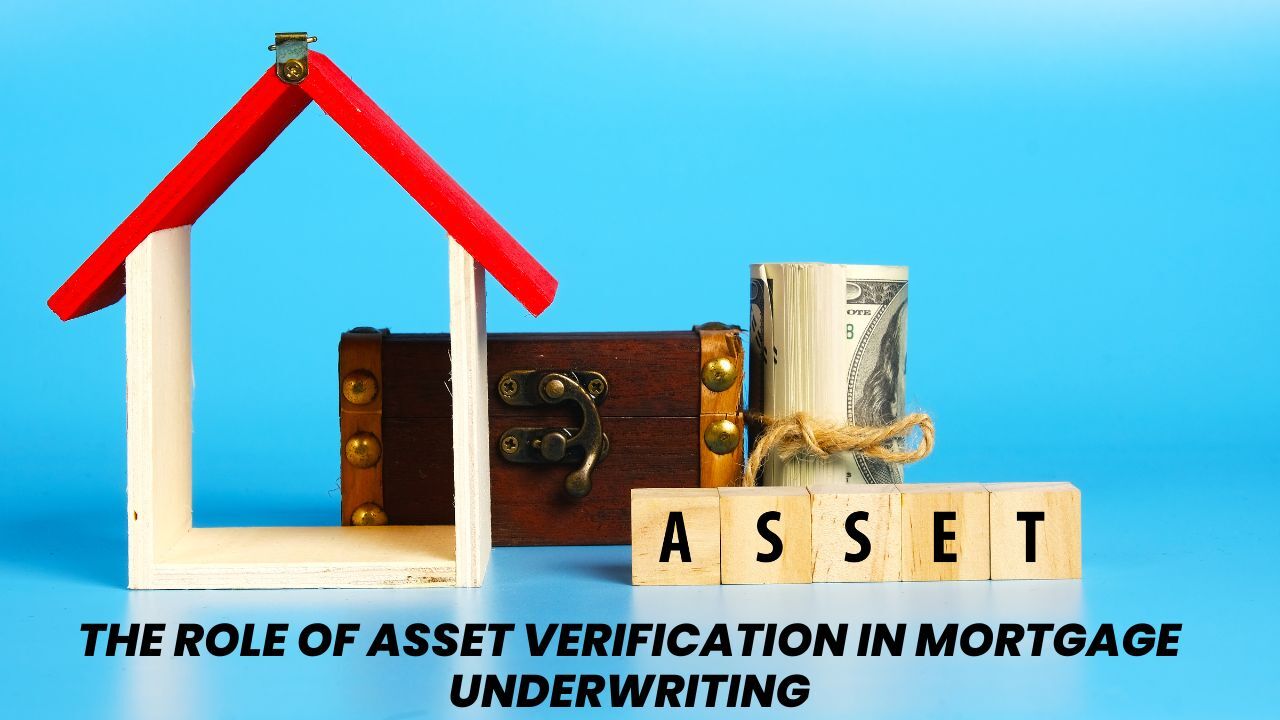 When buyers apply for a mortgage, income and credit history get most of the attention. However, there is another essential part of the underwriting process that plays a major part in determining approval. Asset verification helps lenders understand the financial strength behind an application and gives them greater confidence in the borrower’s ability to manage the loan responsibly.
When buyers apply for a mortgage, income and credit history get most of the attention. However, there is another essential part of the underwriting process that plays a major part in determining approval. Asset verification helps lenders understand the financial strength behind an application and gives them greater confidence in the borrower’s ability to manage the loan responsibly.
What Asset Verification Means
Asset verification is the process of reviewing the funds a borrower has available. This includes checking bank accounts, retirement accounts, investment accounts and any other liquid sources. Lenders look for accurate documentation that confirms the money belongs to the borrower and is seasoned, meaning it has been in the account long enough to be considered stable.
Why Assets Matter to Lenders
Lenders evaluate assets to confirm that borrowers can cover the upfront costs of a home purchase. These costs include the down payment, closing expenses and required reserves. Reserves are funds that remain after closing and demonstrate that the borrower can continue making payments even if an unexpected financial challenge arises. Strong assets help reduce risk for the lender.
How Seasoning and Documentation Work
Documentation is a key part of asset verification. Lenders typically review two to three months of statements for any account the borrower plans to use. They look for consistency in balances and review the source of any large deposits. If a large deposit cannot be clearly explained, the lender may not count it as eligible funds. Clear and complete documentation helps the underwriting process move smoothly.
Common Sources of Verified Assets
Most buyers use a combination of checking and savings accounts, but other sources can also support the application. Retirement accounts, investment portfolios, certificates of deposit and gift funds from eligible donors may also be considered. Each source must be documented correctly to be counted toward available funds.
How Asset Verification Supports Approval
A borrower with steady, documented and seasoned assets shows financial responsibility. This stability can help strengthen the overall application, especially for buyers with limited credit history or higher debt to income ratios. When assets are clearly documented, predictable and sufficient, lenders feel more confident issuing an approval.
Asset verification is a vital part of mortgage underwriting because it helps lenders fully understand the financial picture behind the loan request. With the right documentation and preparation, borrowers can move forward with confidence and clarity.
 Many hopeful homebuyers find that their income alone does not quite meet the requirements for a mortgage. This challenge is especially common for people early in their careers, those recovering from financial setbacks, or buyers facing higher home prices. One option that can make a meaningful difference is bringing in a non-occupant co-borrower.
Many hopeful homebuyers find that their income alone does not quite meet the requirements for a mortgage. This challenge is especially common for people early in their careers, those recovering from financial setbacks, or buyers facing higher home prices. One option that can make a meaningful difference is bringing in a non-occupant co-borrower.
 The idea of extending mortgage terms well beyond the traditional thirty years is gaining new attention. With rising home prices and tightened affordability, many buyers are wondering whether a much longer loan could help lower the monthly payment enough to make homeownership more achievable. Before deciding if this type of option makes sense, it is important to look at why the concept is being discussed and what it could mean for buyers in the real world.
The idea of extending mortgage terms well beyond the traditional thirty years is gaining new attention. With rising home prices and tightened affordability, many buyers are wondering whether a much longer loan could help lower the monthly payment enough to make homeownership more achievable. Before deciding if this type of option makes sense, it is important to look at why the concept is being discussed and what it could mean for buyers in the real world. The time between Thanksgiving and the New Year is known for gratitude, togetherness and heartfelt giving. Many families share meaningful gifts during this stretch of the year, and some buyers discover that these seasonal acts of generosity can help make homeownership possible. If you have found the right home but need help with upfront costs, financial gifts from loved ones may be the support that brings your plans together.
The time between Thanksgiving and the New Year is known for gratitude, togetherness and heartfelt giving. Many families share meaningful gifts during this stretch of the year, and some buyers discover that these seasonal acts of generosity can help make homeownership possible. If you have found the right home but need help with upfront costs, financial gifts from loved ones may be the support that brings your plans together. Many future buyers think they must eliminate every debt before applying for a mortgage. Reducing debt is helpful, but it is not a requirement for homeownership. You can qualify for a loan even if you have credit cards, student loans or a car payment. What matters most is how well you manage those obligations and how they fit into your overall financial picture.
Many future buyers think they must eliminate every debt before applying for a mortgage. Reducing debt is helpful, but it is not a requirement for homeownership. You can qualify for a loan even if you have credit cards, student loans or a car payment. What matters most is how well you manage those obligations and how they fit into your overall financial picture. Owning a second home is a dream for many people, whether it is a quiet cabin by the lake, a beachfront retreat, or a mountain getaway. For others, that dream also comes with the potential to generate income through short-term rentals. However, mortgages for vacation homes and Airbnb properties are not the same. Lenders view these two types of homes differently, and understanding those differences can help you choose the right financing option for your goals.
Owning a second home is a dream for many people, whether it is a quiet cabin by the lake, a beachfront retreat, or a mountain getaway. For others, that dream also comes with the potential to generate income through short-term rentals. However, mortgages for vacation homes and Airbnb properties are not the same. Lenders view these two types of homes differently, and understanding those differences can help you choose the right financing option for your goals.
 The idea of borrowing money to buy property may seem like a modern concept, but the foundation of the mortgage has been around for thousands of years. From ancient civilizations to today’s digital lending platforms, the mortgage has evolved alongside society’s approach to property ownership, wealth, and security. Understanding where it began offers a fascinating look at how this essential part of homeownership came to be.
The idea of borrowing money to buy property may seem like a modern concept, but the foundation of the mortgage has been around for thousands of years. From ancient civilizations to today’s digital lending platforms, the mortgage has evolved alongside society’s approach to property ownership, wealth, and security. Understanding where it began offers a fascinating look at how this essential part of homeownership came to be. When natural disasters strike, homeowners can find themselves facing unexpected challenges. From hurricanes and floods to wildfires and tornadoes, these events can cause major property damage, income loss, and emotional stress. If you have a mortgage, knowing your options for forbearance and insurance relief can make a significant difference in how you recover financially and protect your home.
When natural disasters strike, homeowners can find themselves facing unexpected challenges. From hurricanes and floods to wildfires and tornadoes, these events can cause major property damage, income loss, and emotional stress. If you have a mortgage, knowing your options for forbearance and insurance relief can make a significant difference in how you recover financially and protect your home.